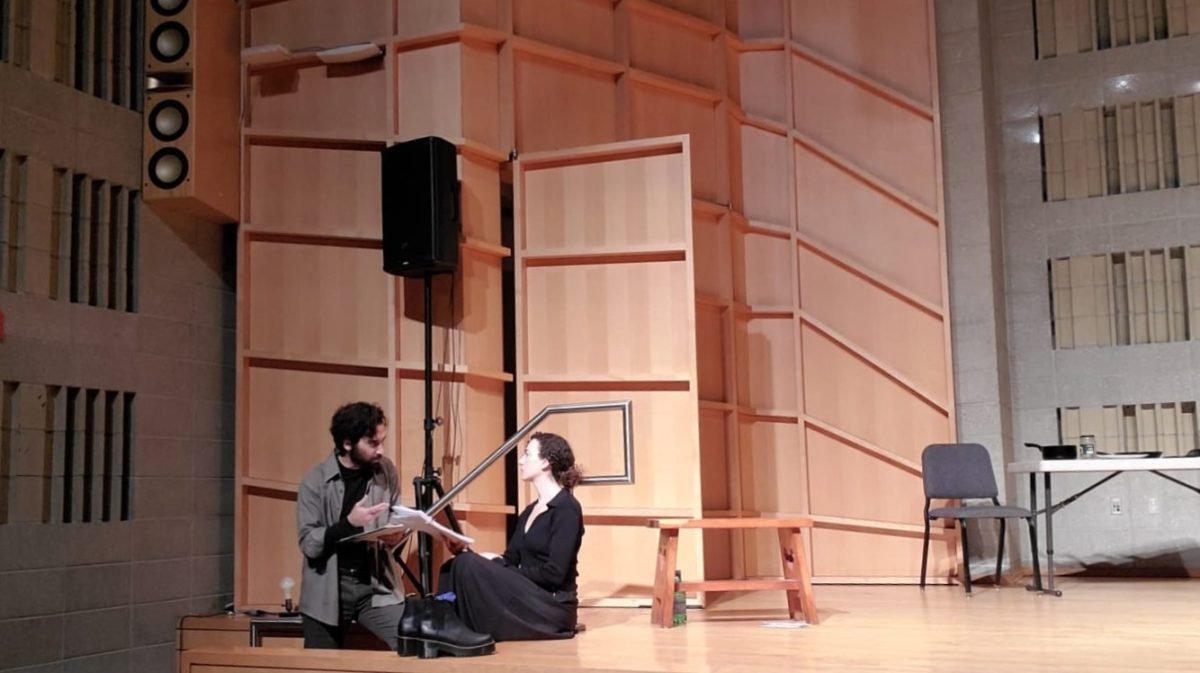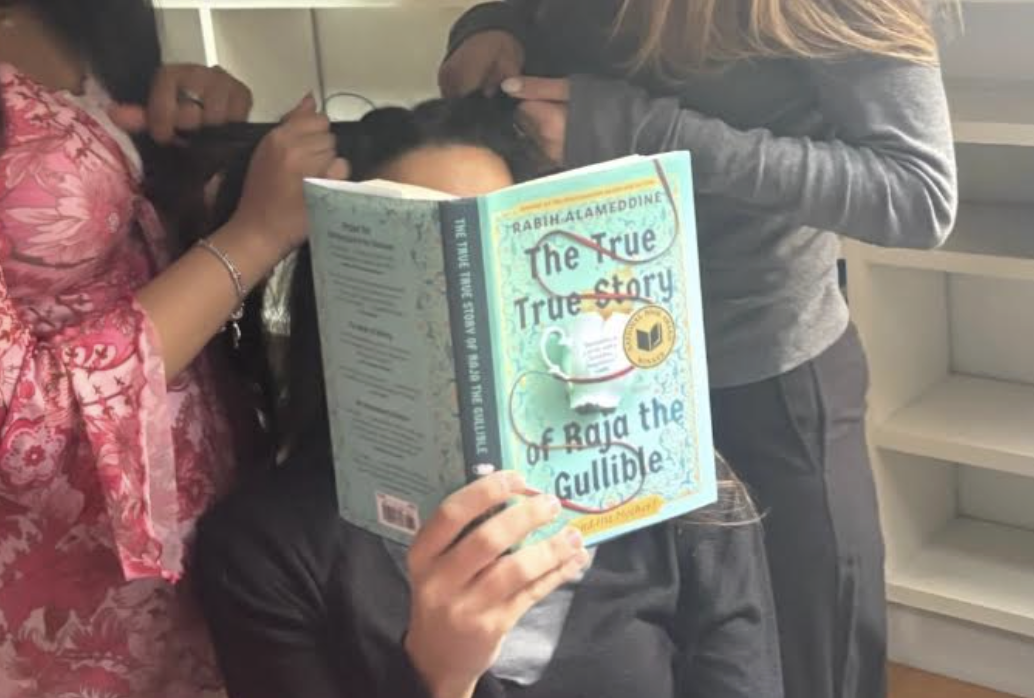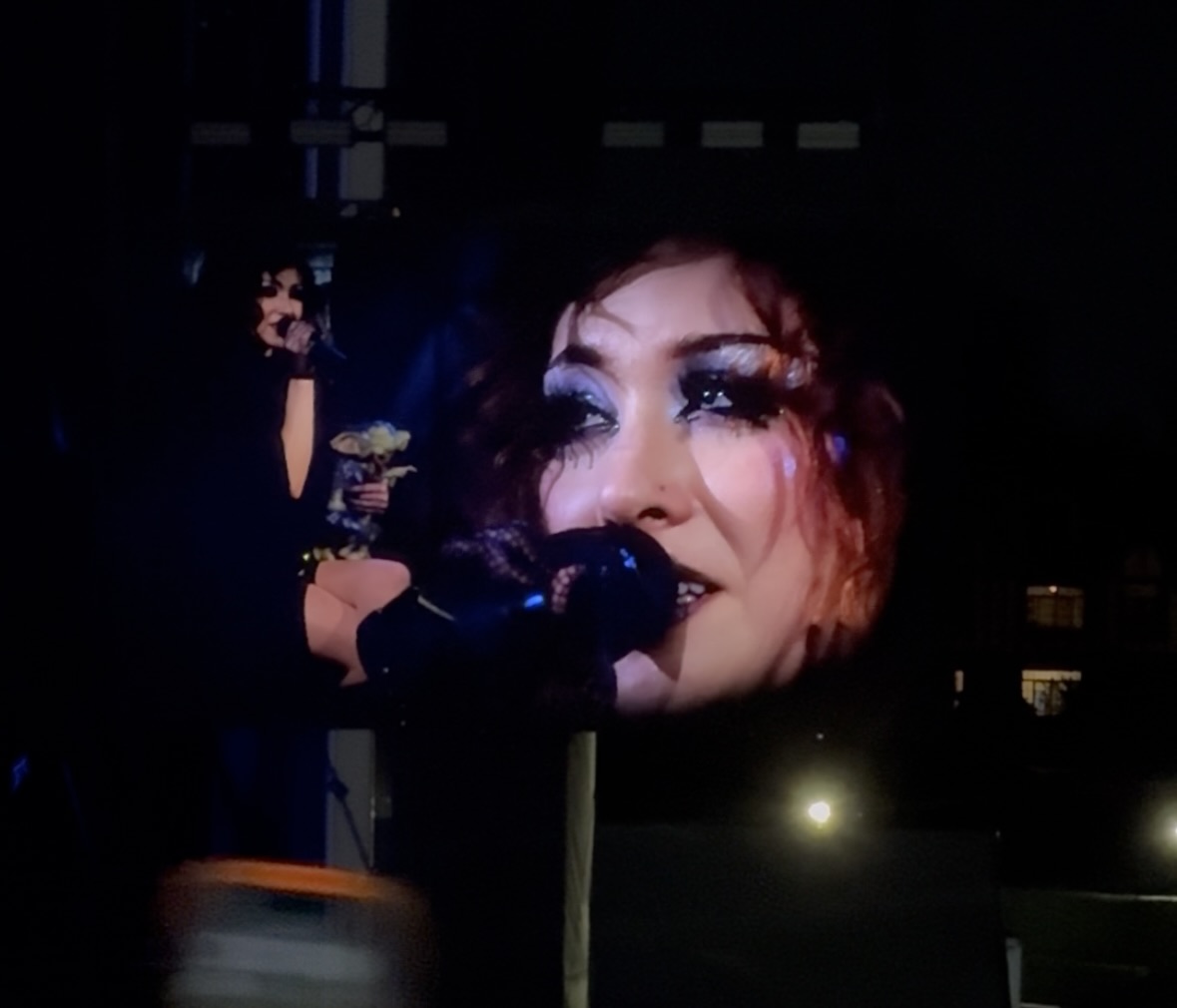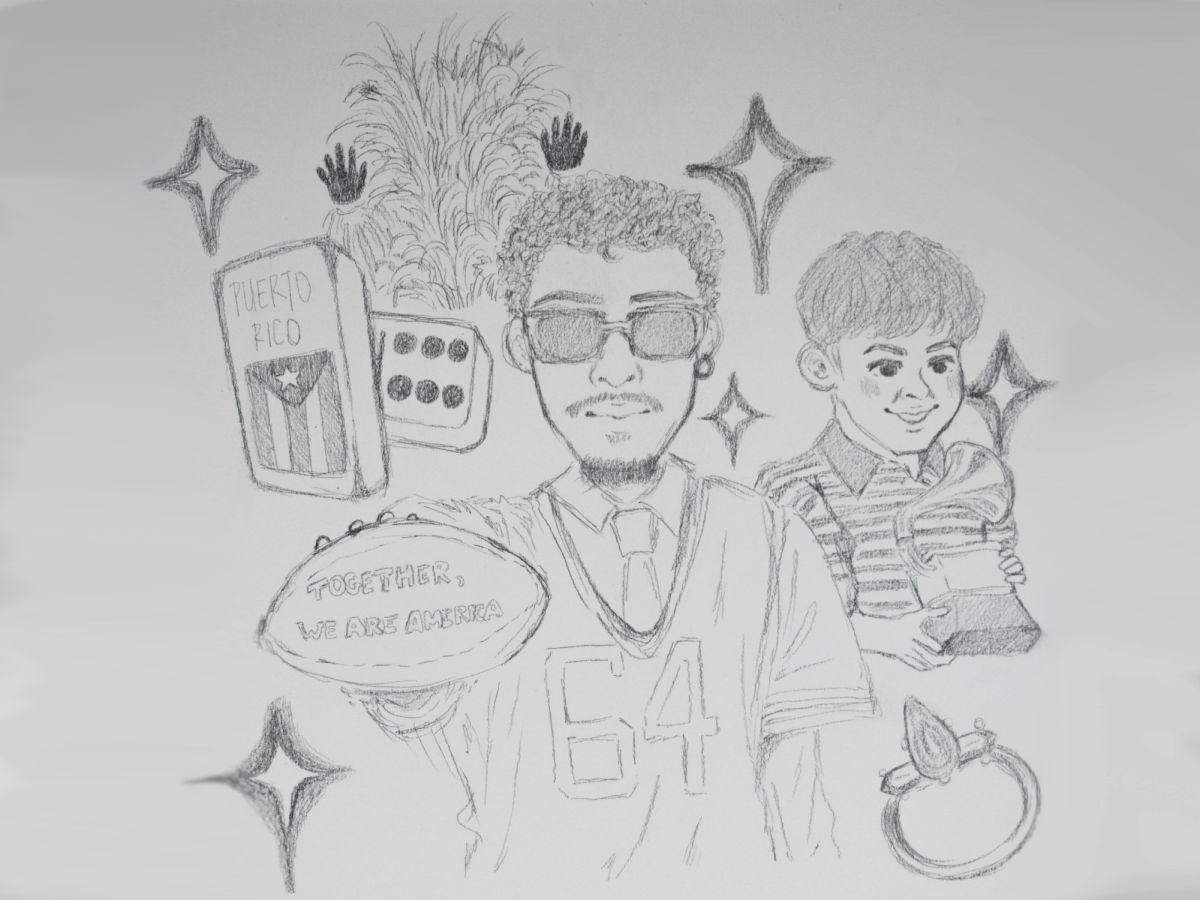As students called out to each other, figuring out where to sit, director Christopher Scott gave a brief foreword to contextualize the show about to be put on. The house lights dimmed. Without costuming or set pieces, three actors brought the 1888 play “Miss Julie” to life in the Engelman Recital Hall in Baruch College’s Performing Arts Center.
Every Baruch student is required to take Great Works of Literature in order to graduate. And every semester, the Great Works program and members of the Department of Fine and Performing Arts together host The Joel Segall Great Works Reading Series.
Laura Kolb, the director of Great Works, explained that the series had started well before her time at Baruch. She isn’t sure exactly when the program started, but she knows “theater has been important to Great Works since its inception in the late 1980s.”
This semester’s selection, “Miss Julie,” was written by August Strindberg, a man so notoriously misogynistic that the director warned the audience of this before the play began.
Taking place over a single night, a wild noblewoman named Miss Julie, played by Kara Arena, entices her valet, Jean, portrayed by Amir Malaklou, into sleeping with her while his fiancée, Kristin, played by Molly Carden, sleeps. Afterward, Miss Julie and Jean spend the rest of the play desperately planning how to escape the consequences of their indiscretion.
Strindberg’s work is very concerned with class and gender, and Miss Julie’s fall from her high status.
As Kristin puts it, “that’s what happens when the gentry try to behave like the common people — they become common.”
This was a staged reading, not a full production. Empty plates were used for meals, sparkling water for beer, a box for a canary cage, and a comb for a razor.
Such a stripped-down performance meant all the audience’s attention was on the actors and the play itself.
The play was read for Baruch students and faculty eight times between Oct. 28 and Oct. 31. Malaklou said in the Q&A that followed the reading that they had four hours a day over four days to rehearse before their first performance in front of an audience.
“Part of our process is I’m still getting to know it,” he said of Miss Julie.
Given their limited time with the text and the Engelman Recital Hall, all three actors showed remarkable understanding of their characters and comfort in the space. Their performances had the audience gasping and sighing with every plot development revealed or insult thrown.
It would have been understandable if they remained in the center of the stage with minimal blocking, but they relied on no such crutch. Kristin moved in and out of the wings with ease, and several tense exchanges between Miss Julie and Jean took place entirely on a set of stairs leading offstage to the left.
In his foreword, Strindberg claims he wrote Miss Julie to represent the weakness inherent in women.
But Carden said of the character, “I do not see someone who is weak. I see someone who is trapped, someone who wants to disappear, someone who doesn’t have a place in the world.”
Carden also pointed out that many women live in oppressive, misogynistic situations or societies even today, like Miss Julie. Arena kept this in mind as she found her connection to her character.
Next semester’s entry in The Joel Segall Great Works Reading Series has not been announced. Whatever is decided will be open to all Baruch students, even those who aren’t taking Great Works.








